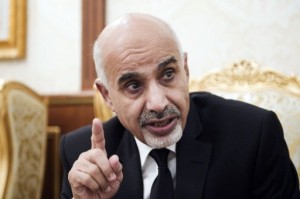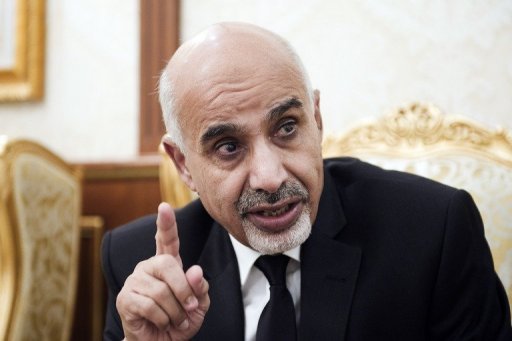
Tripoli (AFP) –The new Libyan authorities said on Saturday the country has not yet been “fully” liberated, exactly a year since the killing of Moamer Kadhafi and against the backdrop of clashes in one of his last bastions.
“The campaign to liberate the country has not been fully completed,” Mohammed Megaryef, the head of Libya’s national assembly, said in remarks broadcast on state television.
He singled out the oasis town of Bani Walid, scene of deadly clashes over the past week and one of the final strongholds of Kadhafi’s dictatorial regime during the 2011 revolution that ousted and killed him.
He pointed to “delays and negligence” in the formation of a professional army and police force, and the failure to disarm and integrate former rebels into state institutions.
The national assembly chief stressed that delays in reactivating and reforming the judiciary had also hampered national reconciliation in what marks a critical transition period for the oil-rich nation.
“This situation has created a state of discontent and tension among different segments of society and contributed to the spread of chaos, disorder, corruption and weakness in the performance of various government agencies,” said Megaryef.
This benefited “remnants of the former of the regime which have infiltrated the organs of the state, maybe even its leadership, and are plotting against the revolution with the help of others who are abroad.”
The weakness of the state, he continued, has allowed groups with or without ties to the former regime to defy the law and carry out arbitrary arrests, torture, blackmail and looting.
“They even dared to establish their own prisons,” Megaryef said in apparent reference to armed militias, some of which have their own detention centres and act as a law unto themselves.
Libya’s top official reserved his sharpest criticism for the town of Bani Walid, which is seen by many as a hideout for regime loyalists and criminal gangs, and endorsed military operations there.
“Bani Walid’s misfortune is that it has become a sanctuary for a large number of outlaws and anti-revolutionaries and mercenaries,” Megaryef said.
Forces linked to the army, the majority of them former rebels, encircled the hilltop town this month in a bid to bring to justice the men who kidnapped and allegedly tortured an ex-rebel credited with capturing Kadhafi.
Fighting around Bani Walid this week has killed more than 10 people.
Megaryef stressed that the operations underway “do not target this brave city or its people, rather they target culprits, wanted people, the accused and infiltrators among its honorable residents.”


